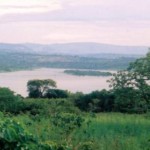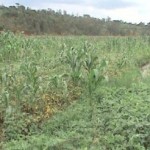 The countries included in the Nile Equatorial Lake sub-basins face an ever increasing pressure on land and water resources, together with rapid population growth. As a result, food production is one of the main concerns and priorities of policymakers in the area. Irrigation and improved water resources management have the potential to boost agricultural productivity in the area, currently almost entirely rainfed. Irrigated crop yields are much higher than rainfed yields, which means that there is a high potential to increase food production in the area.
The countries included in the Nile Equatorial Lake sub-basins face an ever increasing pressure on land and water resources, together with rapid population growth. As a result, food production is one of the main concerns and priorities of policymakers in the area. Irrigation and improved water resources management have the potential to boost agricultural productivity in the area, currently almost entirely rainfed. Irrigated crop yields are much higher than rainfed yields, which means that there is a high potential to increase food production in the area.
The Regional Agricultural Trade & Productivity (RATP) has therefore announced a call for proposal that can be categorized as preparation for a development program. The RATP is managed by a Project Management Unit based in Bujumbura-Burundi, and is administratively linked to the NBI’s (Nile Basin Initiative) Subsidiary Action Program for the Nile Equatorial Lakes (NELSAP), which has a coordinating unit (NELSAP-CU) based in Kigali.
 FutureWater, in collaboration with WaterWatch, successfully applied for this study, and were assigned by RATP to work on this project. The general objective of the study is to assess the irrigation potential of seven Nile Countries (Burundi, Eastern DRC, Kenya, Rwanda, Southern Sudan, Tanzania and Uganda) in order to fill gaps in the NBI and member country information bases on agriculture water use. The assignment will be carried out under the RATP project, with the support of NELSAP and the Directorate of Irrigation in the Ministries in charge of Water and Irrigation in the seven countries.
FutureWater, in collaboration with WaterWatch, successfully applied for this study, and were assigned by RATP to work on this project. The general objective of the study is to assess the irrigation potential of seven Nile Countries (Burundi, Eastern DRC, Kenya, Rwanda, Southern Sudan, Tanzania and Uganda) in order to fill gaps in the NBI and member country information bases on agriculture water use. The assignment will be carried out under the RATP project, with the support of NELSAP and the Directorate of Irrigation in the Ministries in charge of Water and Irrigation in the seven countries.
